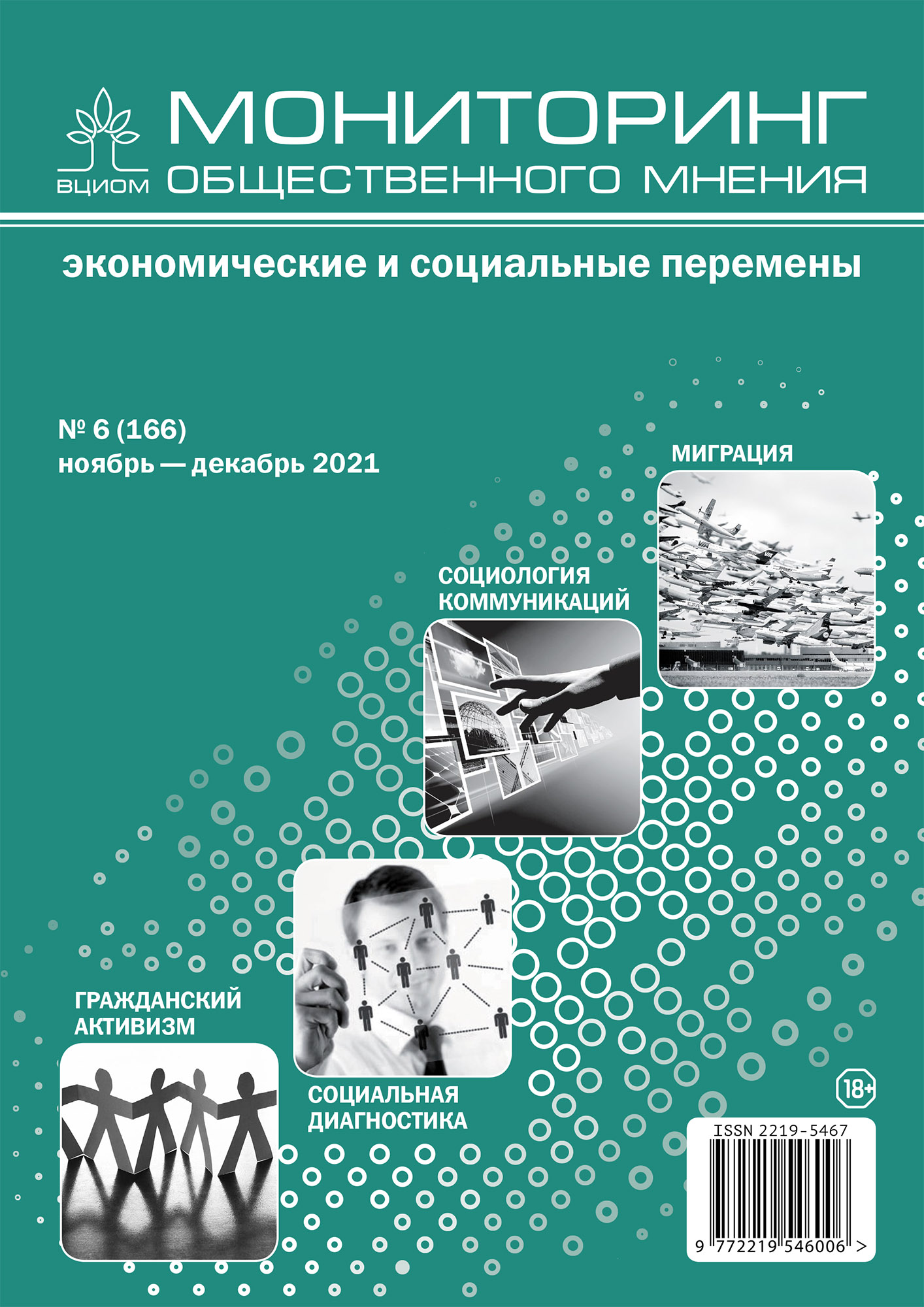Гражданский активизм российской молодежи в цифровой среде как предиктор активности офлайн: результаты массового опроса и мультиагентного моделирования
DOI:
https://doi.org/10.14515/monitoring.2021.6.2041Ключевые слова:
цифровые коммуникации, социальные медиа, социальные сети, гражданский активизм, цифровой активизм, политическая мобилизация, молодежь, мультиагентное моделирование, лидер общественного мнения, вовлеченные, кликтивистыАннотация
Статья посвящена проблеме влияния социально-медийных коммуникаций на гражданский и политический активизм молодежи, составляющей ядро российской интернет-аудитории. Исследование направлено на определение сценариев развития гражданской и политической мобилизации в России. Авторы определяют базовые типы гражданского активизма российской молодежи офлайн и онлайн («акторы», «вовлеченные», «кликтивисты», «выключенные»), а также строят математическую модель, учитывающую соотношение между ними, их ценностные портреты и доминирующие интернет-стратегии. Работа основана на данных массового опроса населения и методах мультиагентного моделирования.
В результате применения мультиагентного моделирования разработана типология агентов, состоящая из пяти групп, описаны основные функции, которые реализует каждый агент, а также параметры, по которым эти агенты объединяются в одну группу; составлена развернутая схема взаимодействия агентов и описаны алгоритмы их взаимодействия в зависимости от внешних факторов; представлены способы перехода агентов из группы в группу.
Установлено, что масштаб, направленность и конвенциональность деятельности коллективных акторов в условиях их мобилизации посредством цифровых коммуникаций зависят от способности агентов (лидеров общественного мнения, контекстнообусловленных лидеров общественного мнения, вовлеченных и др.) меняться ролями и средами, обеспечивая тем самым силу «слабых связей».
Благодарность. Статья подготовлена по результатам исследований, выполненных за счет бюджетных средств по государственному заданию Финансового университета.
Загрузки
Опубликован
Как цитировать
Выпуск
Раздел
Лицензия
Copyright (c) 2021 Мониторинг общественного мнения: экономические и социальные перемены

Это произведение доступно по лицензии Creative Commons «Attribution-NonCommercial-ShareAlike» («Атрибуция — Некоммерческое использование — На тех же условиях») 4.0 Всемирная.






